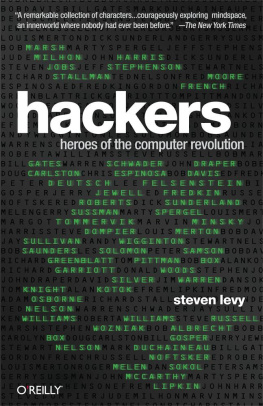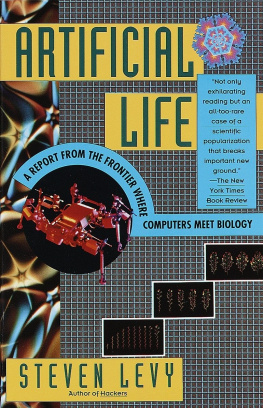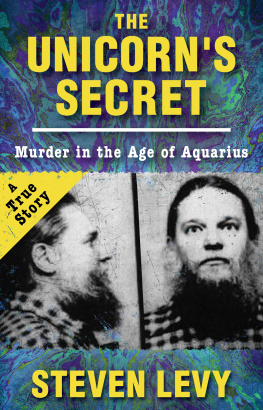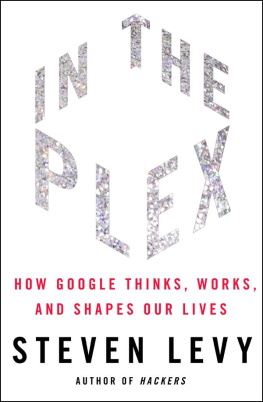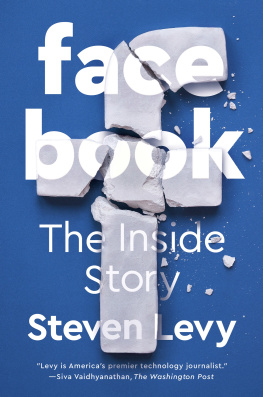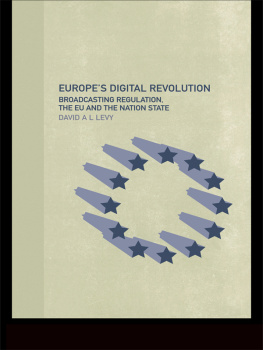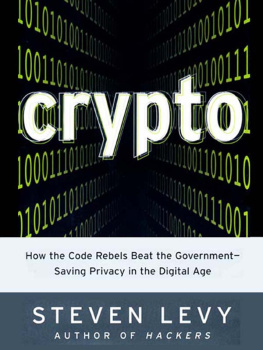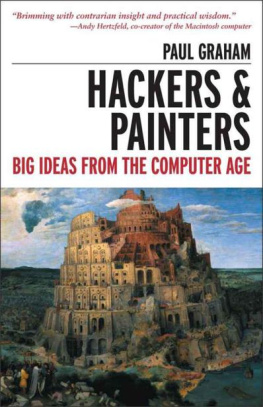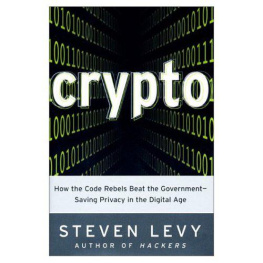Steven Levy - Hackers: heroes of the computer revolution:
Here you can read online Steven Levy - Hackers: heroes of the computer revolution: full text of the book (entire story) in english for free. Download pdf and epub, get meaning, cover and reviews about this ebook. City: Sebastopol, CA, year: 2010, publisher: OReilly, genre: Computer. Description of the work, (preface) as well as reviews are available. Best literature library LitArk.com created for fans of good reading and offers a wide selection of genres:
Romance novel
Science fiction
Adventure
Detective
Science
History
Home and family
Prose
Art
Politics
Computer
Non-fiction
Religion
Business
Children
Humor
Choose a favorite category and find really read worthwhile books. Enjoy immersion in the world of imagination, feel the emotions of the characters or learn something new for yourself, make an fascinating discovery.
- Book:Hackers: heroes of the computer revolution:
- Author:
- Publisher:OReilly
- Genre:
- Year:2010
- City:Sebastopol, CA
- Rating:3 / 5
- Favourites:Add to favourites
- Your mark:
- 60
- 1
- 2
- 3
- 4
- 5
Hackers: heroes of the computer revolution:: summary, description and annotation
We offer to read an annotation, description, summary or preface (depends on what the author of the book "Hackers: heroes of the computer revolution:" wrote himself). If you haven't found the necessary information about the book — write in the comments, we will try to find it.
Hackers: heroes of the computer revolution: — read online for free the complete book (whole text) full work
Below is the text of the book, divided by pages. System saving the place of the last page read, allows you to conveniently read the book "Hackers: heroes of the computer revolution:" online for free, without having to search again every time where you left off. Put a bookmark, and you can go to the page where you finished reading at any time.
Font size:
Interval:
Bookmark:
Steven Levy

All Your Books Are Belong To Us !
http://c3jemx2ube5v5zpg.onion
Heroes of the Computer Revolution
Copyright 1984 Steven Levy
ISBN-10 : 1449388396
ISBN-13 : 978-1449388393
This 25th anniversary edition of Steven Levy's classic book traces the exploits of the computer revolution's original hackers -- those brilliant and eccentric nerds from the late 1950s through the early '80s who took risks, bent the rules, and pushed the world in a radical new direction. With updated material from noteworthy hackers such as Bill Gates, Mark Zukerberg, Richard Stallman, and Steve Wozniak, Hackers is a fascinating story that begins in early computer research labs and leads to the first home computers.
Levy profiles the imaginative brainiacs who found clever and unorthodox solutions to computer engineering problems. They had a shared sense of values, known as "the hacker ethic," that still thrives today. Hackers captures a seminal period in recent history when underground activities blazed a trail for today's digital world, from MIT students finagling access to clunky computer-card machines to the DIY culture that spawned the Altair and the Apple II.
Font size:
Interval:
Bookmark:
Similar books «Hackers: heroes of the computer revolution:»
Look at similar books to Hackers: heroes of the computer revolution:. We have selected literature similar in name and meaning in the hope of providing readers with more options to find new, interesting, not yet read works.
Discussion, reviews of the book Hackers: heroes of the computer revolution: and just readers' own opinions. Leave your comments, write what you think about the work, its meaning or the main characters. Specify what exactly you liked and what you didn't like, and why you think so.

